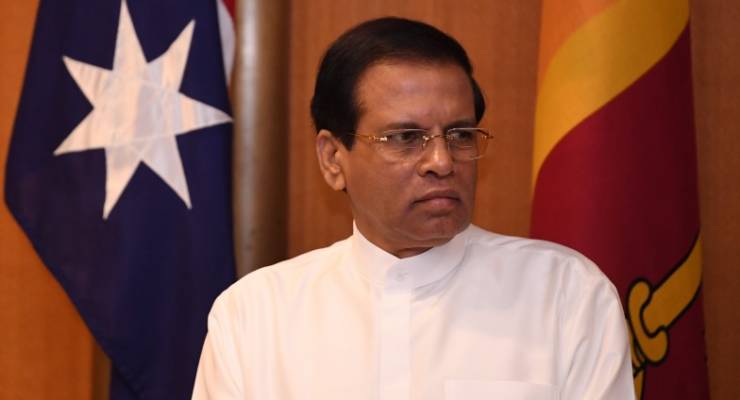
Sri Lanka’s constitutional crisis has deepened, with a split between President Maithripala Sirisena and the man he has, allegedly illegally, appointed as Prime Minister, Mahinda Rajapaksa. This follows Sirisena’s decision on Friday to call a snap election for January 5, which appears to be in breach of the country’s constitution.
The new elections are being challenged in Sri Lanka’s Supreme Court by one of the country’s three election commissioners, Professor Ratnajeevan Hoole. The other two election commissioners have handed over their responsibility for organising the elections to the Commissioner General for Elections. The challenge is one of 10 before the Supreme Court on the constitutional validity of the snap election. A three-judge bench began hearing the submissions yesterday. The Supreme Court issued an interim stay on the dissolution of parliament until December 7.
The controversial Rajapaksa quit the Sirisena-led Sri Lanka Freedom Party (SLFP) on Sunday to join the Sri Lanka Redemption Front (Podujana Peramuna, or SLPP). The SLPP was established in 2016 by Rajapaksa’s younger brother and former economic development minister, Basil Rajapaksa.
Up to 44 SLFP members have also left to join the SLPP, with another 21 said to be set to follow. This move will leave the SLFP with just 15 sitting members.
The split within the SLFP follows Sirisena’s sacking of Prime Minister Ranil Wickremesinghe on October 26. Wickremesinghe has since refused to acknowledge his sacking, which many have claimed was also unconstitutional.
Sirisena appointed Rajapaksa — who has a history of authoritarianism and nepotism — as prime minister following a split between Wickremesinghe’s majority United National Party (UNP) and the SLFP. Sirisena had previously defected from the SLFP, then led by Rajapaksa, in 2014 to join an opposition coalition that ousted Rajapaksa as president the following January.
Rajapaksa’s defeat at the hands of a Sirisena-Wickremesinghe coalition was unexpected, given he was held in high regard by many in the Sinhalese majority community for brutally crushing the Tamils Tigers in 2009. Following his defeat as president, Rajapaksa and his brother Basil were investigated for high level corruption.
Following his election as president, Sirisena rejoined the SLFP, took over its leadership and formed a national government with Wickremesinghe’s UNP.
Despite Sirisena defeating Rajapaksa in 2015, the pair appeared to have healed their rift over 2017. Sirisena’s appointment of Rajapaksa as prime minister marked what many thought were positive relations.
Meanwhile, a rift opened up between Sirisena and Wickremesinghe over Sri Lanka’s policy towards China and India. Wickremesinghe supported Indian investment in response to a high level of Chinese investment in key Sri Lankan infrastructure projects. The pair also fell out over Sirisena’s intention to contest the 2020 presidential election under the UNP banner, which Wickremesinghe opposed.
While relations between the SLFP and UNP soured, the SLPP built its base. Endorsed by Rajapaksa over the SLFP, of which he was then a member, the SLPP had a major win in council elections earlier this year, seen by many as a “correction” of the January 2015 election result.
In these elections, the SLPP secured 231 local councils, compared to the UNP taking 34, with the two parties that Sirisena represents, the SLFP and the United People’s Freedom Alliance, securing just nine councils. Sirisena appeared to be trying to buy favor with the resurgent Rajapaksa by appointing him as prime minister, only for Rajapaksa to dump Sirisena and the SLFP.
At one level, this could all be considered high Machiavellian politics. However, Sirisena’s sacking of Wickremesinghe as prime minister, the appointment of Rajapaksa in his place along with the immediate proroguing of parliament, and the call for fresh elections indicate a pronounced disregard for Sri Lanka’s constitution, which Sirisena, ironically, helped to reform.
Perhaps more importantly, Rajapaksa has indicated his own disregard for the constitution and, allegedly, for law. Given his continuing strong popularity with Sinhalese chauvinist nationalists, there is now concern that, now back in power, he will seek to effectively dismantle Sri Lanka’s parliamentary democracy.
Damien Kingsbury is Deakin University’s Professor of International Politics, and author of the book Sri Lanka: Politics, Ethnicity and Genocide.








Follow the money.